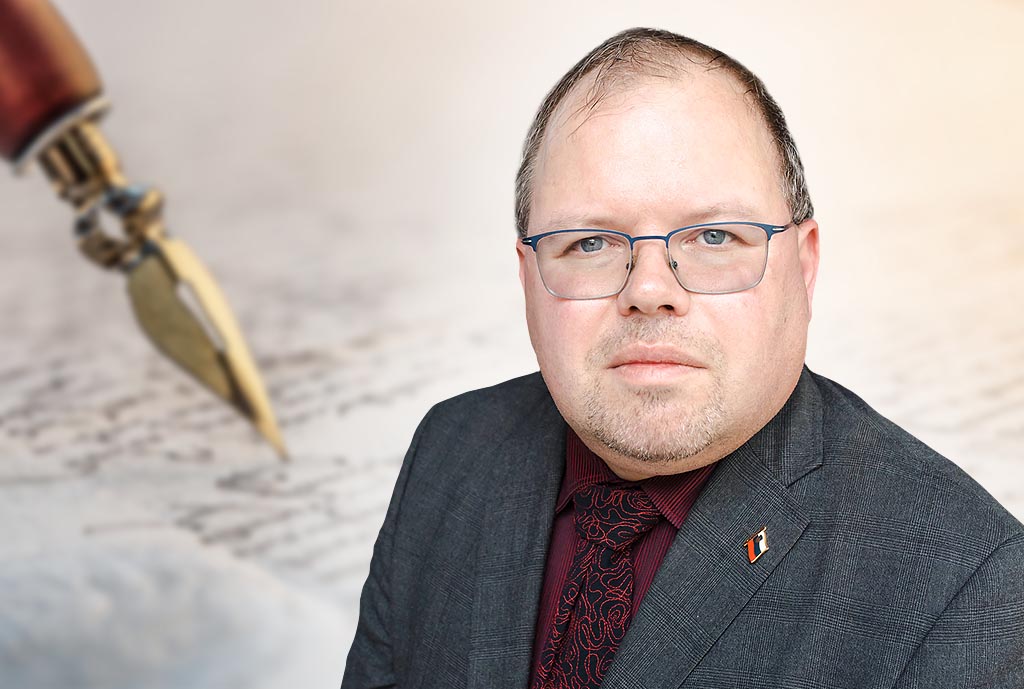By: Gašper Blažič
The anniversary of Cankar’s death on December 11th last year passed almost unnoticed in the media. While just a year or two ago, the notorious rapper from Ljubljana’s Fužine, who often directed his media-covered “heroics” against the previous government and proclaimed himself a reincarnated Cankar, was associated with the most famous Slovenian writer, this time around, there was silence in the Slovenian media stew.
Perhaps the lack of media attention can also be attributed to a guilty conscience, as a few years ago, an article circulated publicly linking Cankar’s mysterious death to the formation of the Kingdom of SHS (the Kingdom of Serbs, Croats, and Slovenes), over which the renowned Slovenian writer, despite his general favour towards the idea of uniting Slavic nations, did not express much enthusiasm. Nevertheless, official biographies of Cankar still predominantly maintain the assessment that the giant of Slovenian literature died at the age of 43 due to tuberculosis or perhaps pneumonia. Possibly even due to a “fall down the stairs” (whatever that may mean).
Ivan Cankar left many quotes to the Slovenian people. One of the most famous resonated in the summer of 1988 when a trio of accused individuals (out of a total of four) was released from the then-military prison on Metelkova Street in Ljubljana in one of the most scandalous legal proceedings in Slovenian history. The trial, which did not take place in the Slovenian language, was conducted by actors – both the “civilian” SDV (Slovenian Security and Intelligence Service) and the military KOS (Counterintelligence and Security Service) – who tried to keep it as anonymous as possible. They expected the convicts to quietly disappear into the night, allowing the executioners to wash their hands and get rid of the biggest threat, which – after Milan Kučan – was polluting the Slovenian space with “fascistoid manners”. However, this plan did not succeed. The release of the dissident trio from military detention – only one of them was a military official! – was not yet a won battle, but the event was largely the result of strong public pressure. Thus, at the end of July, the ears of the crowd were touched by the voice of Ivan Borštner, a namesake of Cankar, who began his speech with the quote “I, brothers, know about the homeland!”
IN 2013, THE MUSICAL RENDITION OF “OČENAŠ HLAPCA JERNEJA” (THE LORD’S PRAYER OF SERVANT JERNEJ) WANTED TO BE STAGED IN THE PREMISES OD THE SLOVENIAN TEMPLE OF DEMOCRACY, BUT THE PRESIDENT OF THE NATIONAL ASSEMBLY AT THE TIME, JANKO VEBER FROM SD, CLEARLY AND LOUDLY SAID NO.
From Cankar’s social-democratic period, there is also a famous quote that “the nation will write its own judgment”, which the writer placed in the mouth of Jerman, the protagonist of Cankar’s political drama “Hlapci” (The Farmhands). Despite this, a part of the text from this drama became politically incorrect a century after its first edition. In 2013, the musical adaptation of “Očenaš hlapca Jerneja” based on Ivan Cankar’s text – the musical part composed by Ambrož Čopi – wanted to be staged in the premises of the Slovenian Temple of Democracy, but the President of the National Assembly at the time, Janko Veber from SD, said a clear and loud NO. However, eight years later, the same text, with a different composer, found its place in the repertoire of the Women’s Choir Kombinat. The Embassy of Revolutionary Culture is ready to include even a prayer in its repertoire. A significant progress for the modern left, for which I am not sure if the social democrat Cankar would even want to belong.
I do not know if he would agree with this famous Cankar quote. Perhaps only partially. In the year when the President of the National Assembly of the Republic of Slovenia censored the aforementioned “Očenaš hlapca Jerneja”, a kind of initiative group with an interesting name “Mreža za neposredno demokracijo” (Network for Direct Democracy) appeared. “We do not want a state where the influence and control of the population over politics are only occasional, limited, and indirect,” wrote the revolutionarily inspired young people in a statement at that time. However, they were not heard when a former television video host, now representing the avant-garde of the working class in parliament, openly stated that “we cannot ask the people for every little thing, what it wants and what it thinks and what it would like because we all know very well that in some matters the people cannot decide as it is right and as it is useful for them”. So, even those who voted for him (and there were fewer than a thousand according to the State Election Commission data) according to him are not capable of deciding on complex issues of our future. In other words, direct democracy is an illusion; the nation cannot write its own judgment. It is written by those who were elected to rule over it. The managerial caste.
Ultimately, our elected representatives have so far also chosen judges. Now that will also be abolished because judges will now choose – themselves. There will only be the wise sky above them, but they will continue to judge “in the name of the people”. The people who have no influence over them. Because, to err is human, we must also admit Cankar the right to be mistaken in some of his statements.

